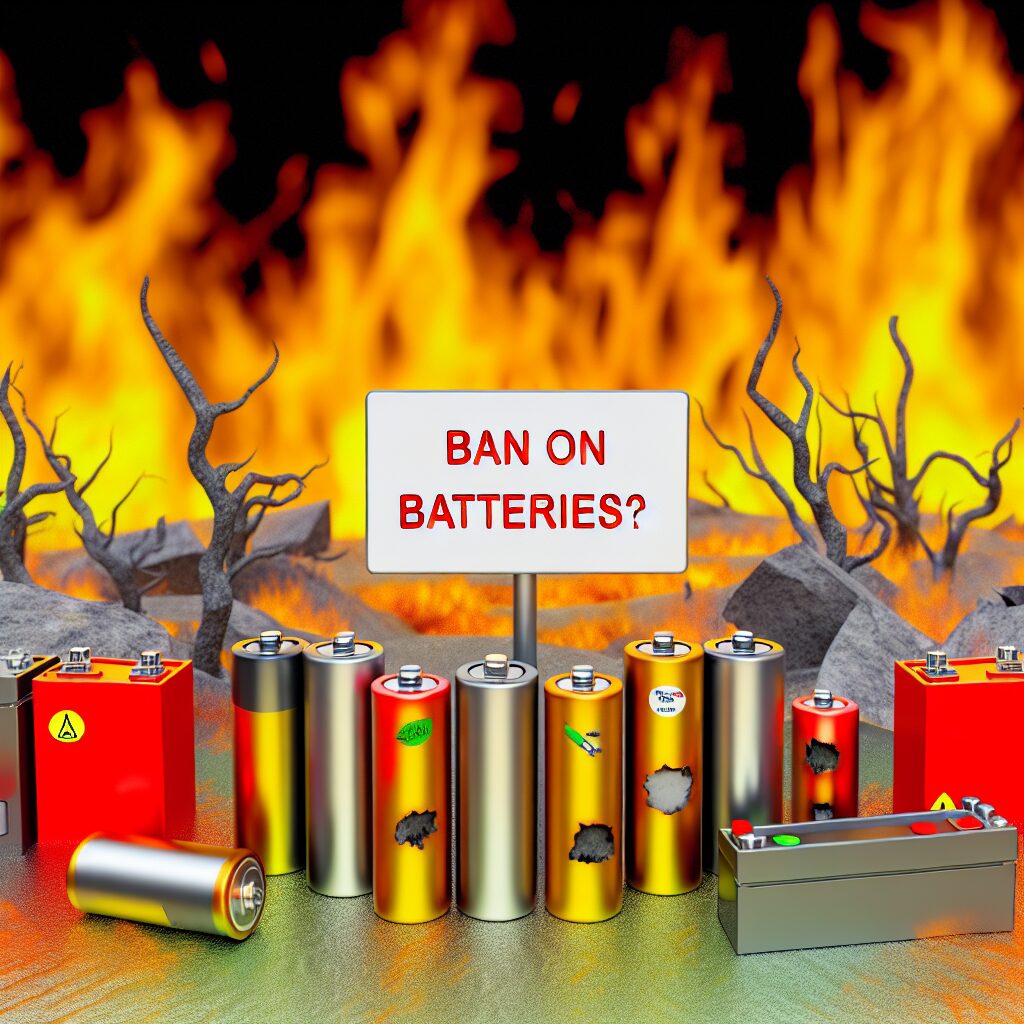Fire Panic Sparks Possible Ban on Key Renewable Energy Batteries
As the world shifts towards renewable energy, the importance of energy storage solutions like lithium-ion batteries cannot be overstated. However, a recent surge in battery-related fires has triggered a wave of concern that might lead to bans on these crucial components. This development could significantly impact renewable energy commitments globally.
The Growing Concern Over Battery Safety
Lithium-ion batteries, lauded for their efficiency and energy density, have become the backbone of renewable energy storage. They power everything from electric vehicles to home energy storage systems. Despite their benefits, these batteries have been at the center of numerous fire incidents. The fires are often caused by battery malfunctions or improper handling, leading to explosive and highly destructive outcomes.
Local governments and regulatory bodies are now grappling with the challenge of ensuring public safety while not stymying the progress of renewable energy initiatives. The fires have not only caused property damage but have also raised questions about the long-term viability of lithium-ion technology in residential and commercial applications.
Investing in research to develop safer battery alternatives is crucial, such as aluminum-ion batteries: address the safety issues without derailing the progress of renewable energy initiatives.
Potential Regulatory Changes
In response to these incidents, several municipalities are considering stringent regulations or outright bans on the use of lithium-ion batteries. These potential bans could have far-reaching implications for the renewable energy sector. For instance, the transition to electric vehicles could slow down, and home energy storage solutions might become less accessible.
The regulatory landscape is still evolving, but the urgency to address these safety concerns is palpable. Some regions are looking into alternative battery technologies, such as solid-state batteries, which promise enhanced safety features. However, these alternatives are not yet commercially viable, making the current situation even more complex.
Impact on Renewable Energy Goals
Renewable energy commitments are a cornerstone of global efforts to combat climate change. Countries around the world have set ambitious targets to reduce carbon emissions and transition to cleaner energy sources. Lithium-ion batteries play a critical role in these plans by providing reliable storage solutions that balance supply and demand.
A ban on these batteries could jeopardize these goals. Energy experts warn that without effective storage solutions, the reliability of renewable energy sources like solar and wind could be compromised. This could lead to increased reliance on fossil fuels, undermining years of progress in the fight against climate change.
Industry Response
The renewable energy industry is not taking these developments lightly. Companies are ramping up research and development efforts to improve the safety of lithium-ion batteries. Innovations in battery management systems and fire suppression technologies are being fast-tracked to mitigate the risks associated with battery fires.
In addition, industry leaders are advocating for more comprehensive safety standards and better public education on the proper use and disposal of batteries. These measures are aimed at addressing the root causes of battery fires and restoring public confidence in this essential technology.
The Need for Balanced Solutions
While the safety concerns are legitimate, experts argue that an outright ban on lithium-ion batteries may not be the best solution. Instead, they call for a balanced approach that includes stricter safety regulations, improved technology, and increased public awareness.
Looking Ahead
The ongoing debate over battery safety and potential bans is a critical juncture for the renewable energy sector. The outcomes of this debate will shape the future of energy storage and, by extension, the success of global renewable energy commitments.
As municipalities and regulatory bodies deliberate on the best course of action, the renewable energy industry must continue to innovate and adapt. Only through collaborative efforts can we ensure that the transition to a sustainable energy future remains on track, without compromising public safety.
Source
Fire Panic: Blazes May Lead to Bans on Batteries Key to Renewable Energy Commitments

